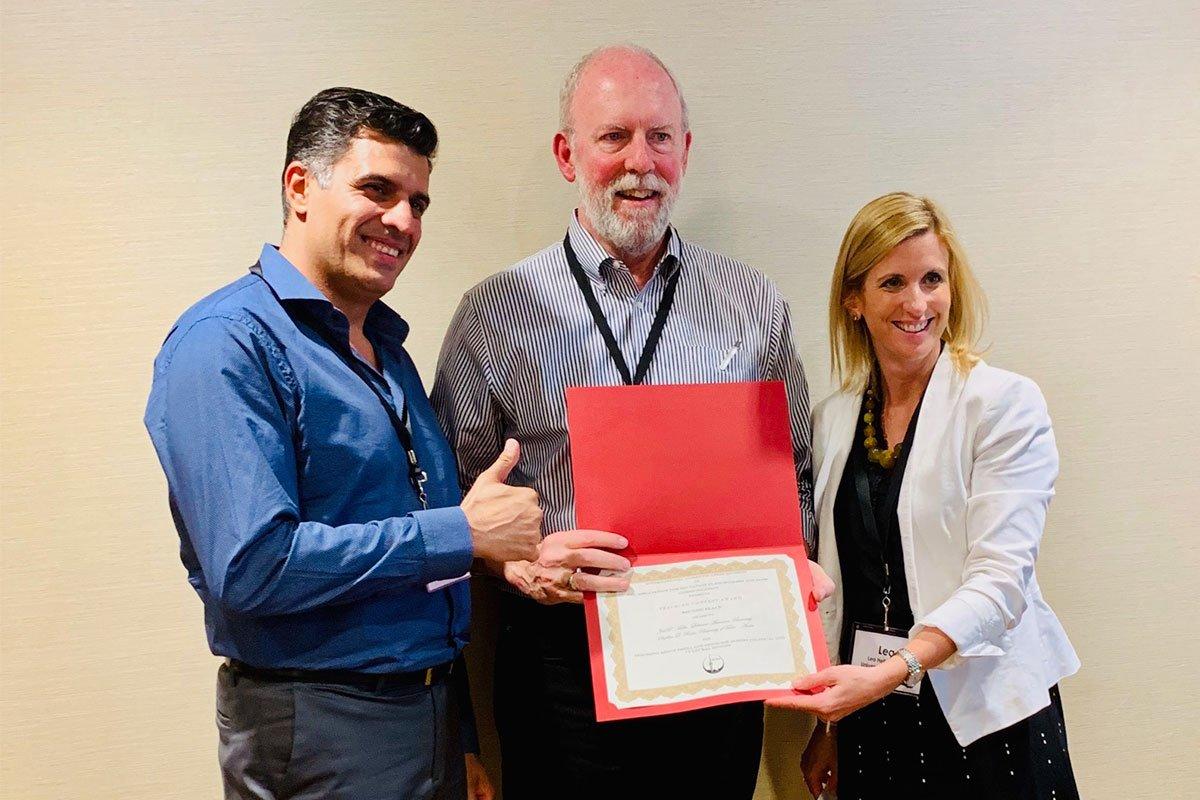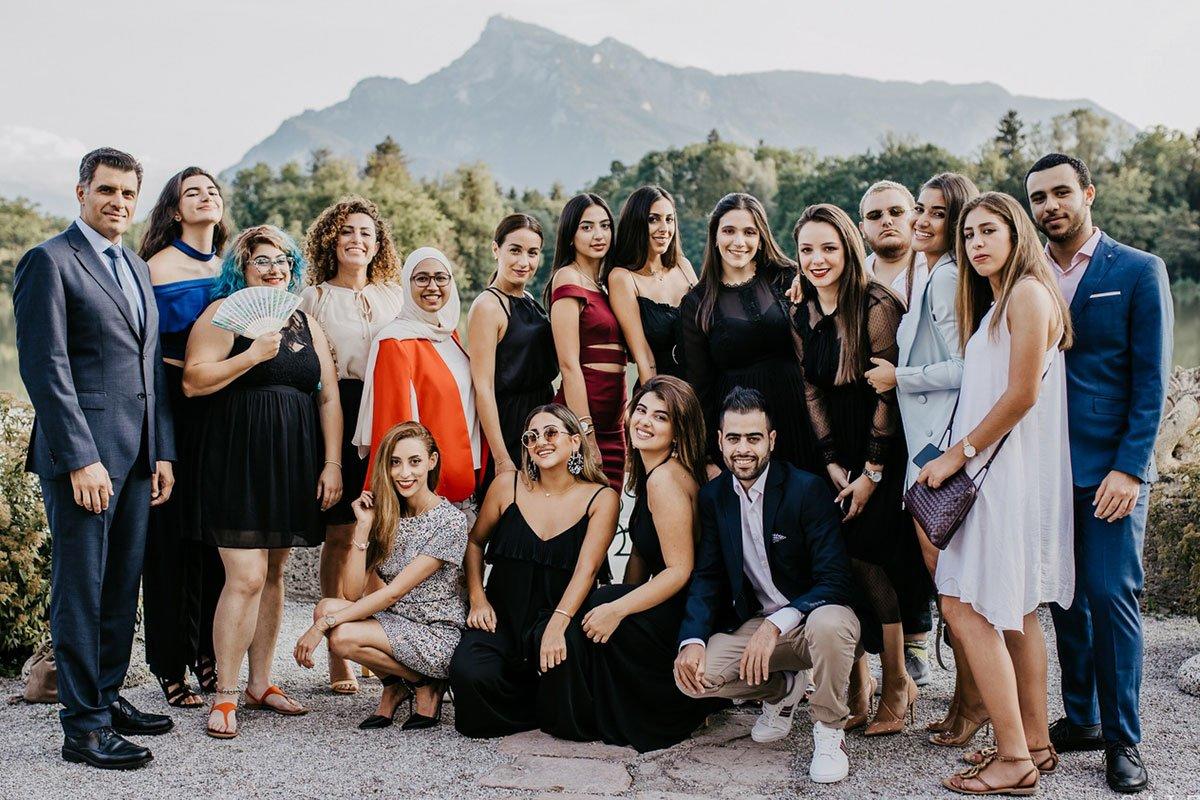Communication Arts Faculty Wins International Award for Research on Media and Genocide
Dr. Jad Melki wins award for study tackling pedagogies of social justice and human rights in media education.
A study by Dr. Jad Melki, chairperson of the Communication Arts Department, focusing on issues of media and genocide has won an award from the International Communication Division of the Association for Education in Journalism and Mass Communication (AEJMC).
The study, co-authored with Professor of Journalism Stephen D. Reese from the University of Texas at Austin, tracked students who attended the Salzburg Academy on Media and Global Change over the past 12 years.
Published in the recently released book New Journalisms: Rethinking Practice, Theory and Pedagogy, the study focuses on a teaching method implemented at the Salzburg Academy that covers “issues of media and genocide and how to teach about issues of social justice and human rights to a highly diverse group of students.”
The Salzburg Academy each year hosts over a hundred students and faculty from around the world who engage in innovative pedagogical practices and collaborative research on media literacy and global change. This year, 18 students from LAU joined others from Argentina, Austria, Canada, China, Hong Kong, India, Jordan, Kenya, Mexico, Spain, the UK, and the US, for the 13th program themed The Cost of Disbelief: Fracturing Societies and the Erosion of Trust.
Dr. Melki said the program “emerged from the dire global need for people from different backgrounds, nationalities, creeds, genders, sexual orientations, religions, and world views to extend their human empathy to those who are outside their imagined tribes.”
Ultimately, the objective is for participants to “understand the role of media and hate speech in perpetuating genocide, war, trauma, discrimination, and conflict, as well as the media’s potential role in stopping conflict and expanding social justice and human rights.”
Focusing on the Holocaust, the study tackled the “special pedagogical challenges – social, intellectual, and emotional – of presenting this material to a diverse body of students, to those who do not share the same cultural, political, and religious context.”
For Dr. Melki, one of the most striking outcomes of the study was the fact that many years later, students “remembered intimate details about the discussions and the intensity of the teaching experience, and how it affected their perceptions of the ‘other’ and made them feel more responsible for acts that affect people outside their in-groups and tribal links.”
He said that he hoped such studies and pedagogies related to them can help students at LAU “understand sectarianism, racism, sexism, and homophobia and be cognizant about dehumanizing and incendiary speech that often precedes and justifies social injustice and mass political violence.”
One of the results showed that while communicating genocide across national lines proved challenging, students “could be pushed out of their comfort zones into a more global perspective and common human rights narrative.”
Comparing statements from the Middle East, Europe, the US and Latin America, results revealed that “European students were almost twice as likely as any other group to say the program made it easier to discuss some subjects, while Middle Eastern students were almost twice as likely to say the opposite.”
Furthermore, students from the US and Latin America were “much more likely than students from the Middle East and Europe to say the program made discussing some subjects easier whilst making other subjects harder.”
The choice of the Holocaust also proved especially double-edged with some students thinking the focus on the Nazi-led genocide “diminished other genocides” while others believed “that introducing other genocides served to trivialize the importance of the Holocaust in its own right.”
“Students from the Middle East found it particularly difficult to separate the Holocaust from the Israel issue and the ongoing conflict and injustice in Palestine,” added Dr. Melki.
Asked about the need for similar studies focused on other genocides and grave human rights violations, Dr. Melki highlighted the standing research program “media/war” at LAU’s Institute of Media Research and Training.
The institute, he said, “runs several research projects focused on the relationship between media and conflict, refugees, terrorism, and other related matters.”
“Each year, we publish at least one study in this area. Some studies dealt with the Syrian conflict, others with terrorism and ISIS, and earlier studies dealt with Lebanon, such as the 2006 war,” he added.

